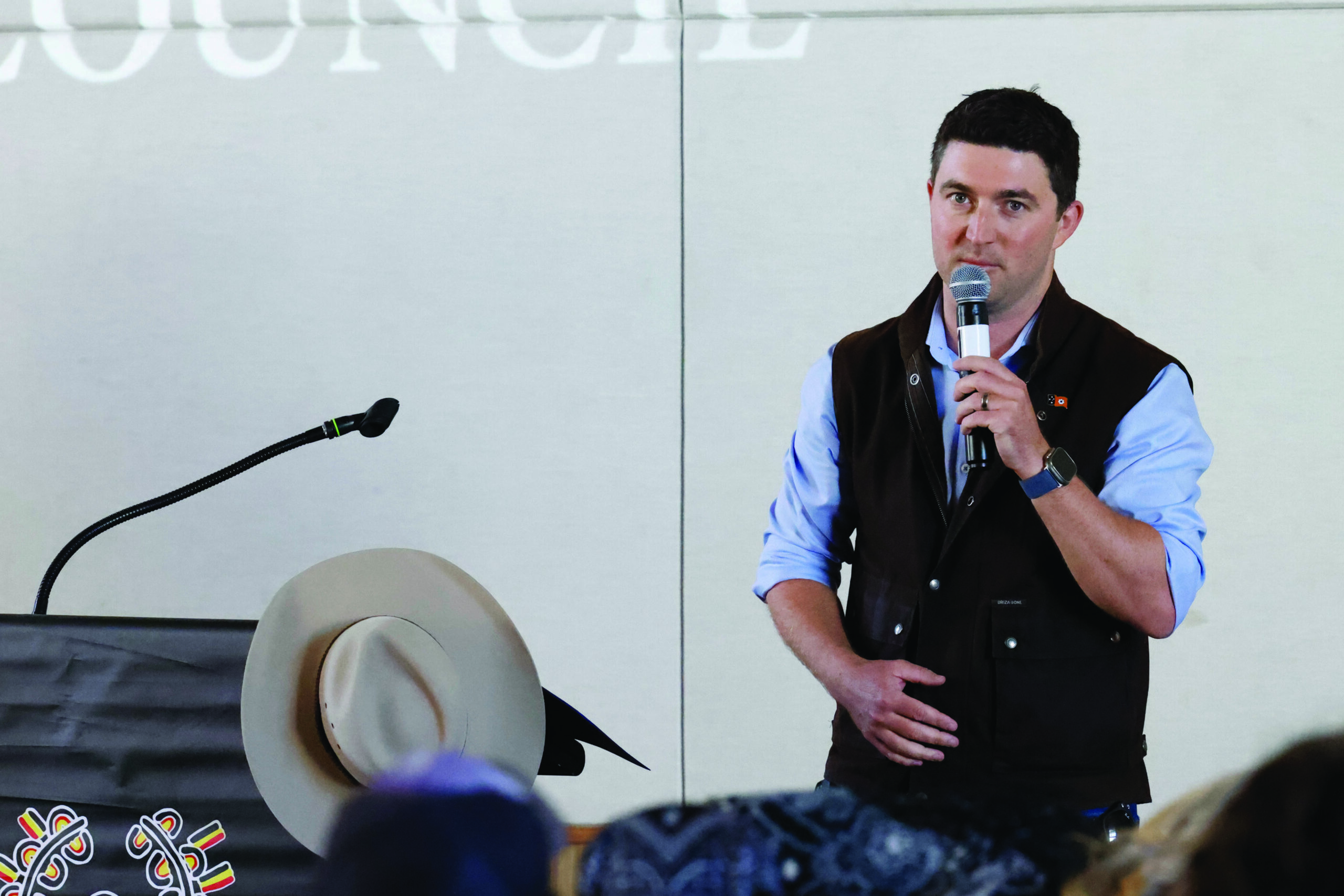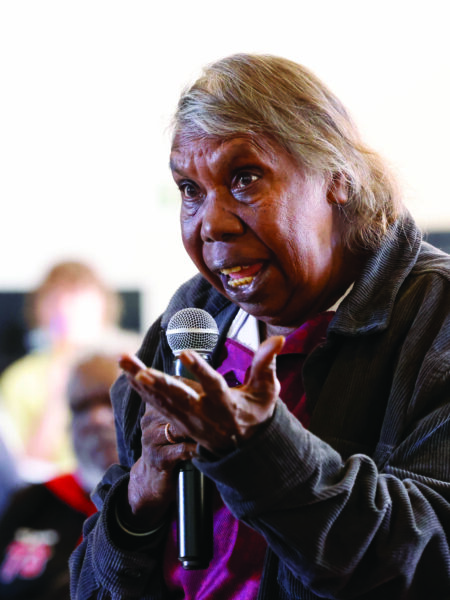A Land Rights News article

The Country Liberal Party government has weakened sacred sites protections, breaking promises to the members of the Central Land Council.
The government rushed changes to the Territory’s sacred sites law through the parliament on 16 May, despite NT environment minister Josh Burgoyne’s promises to the council only weeks earlier.
The cattle and mining industries welcomed the changes, which mean that the certificates that set out the conditions for works carried out near the sites can now be transferred or have additional parties added – all without asking the sites’ traditional owners.
CLC chair Warren Williams wrote to the minister before the changes passed, reminding him that he told the CLC’s April meeting at Yulara that “you would keep talking with us”.
At the meeting, members disagreed with the minister’s claim that the proposed changes would “strengthen” the protection of sacred sites.
They demanded he properly consult traditional owners about the changes before passing them.
Mr Burgoyne told them he would do so and that the certificates would only be transferred for “the exact same work” as that covered by the previous certificate.
He said that traditional owners would be the ones who decide about ‘enforceable undertakings’ – where sacred site damage results in fines or remediation work rather than ending up in court.
He also said he would look into how traditional owners would be compensated if a site is damaged instead of the fine going to the government.
After the meeting Mr Williams wrote to the minister twice, seeking to hold him to these promises.
“I hope that you will be a man of your word,” he wrote.
Yet the changes the government rushed through parliament did none of this.
They include deliberately unclear wording.
For example, they say certificates can be transferred and include additional parties as long as the proposed work and use of the land are the same.
“‘Use of land’ is very vague,” Mr Williams wrote in the letter.
“Mining is a ‘use of land’, but a mine can be big or small and the conditions needed to protect sacred sites could be very different.”
His letter included a list of suggested improvements to the sacred sites law, all of which the government ignored.
His most important request was to not amend the law without the prior informed consent of the four Territory land councils and the board of the Aboriginal Areas Protection Authority.
AAPA, the body overseeing the protection of sacred sites, also complained about the government’s lack of consultation.
“The Sacred Sites Act is meant to protect Aboriginal sacred sites, but Aboriginal people and their representative organisations have not been consulted on these changes,” AAPA chair Bobby Nunggumajbarr said.

AAPA said the Territory government had missed a crucial opportunity to modernise and strengthen the law and that the changes raised “many questions” about the government’s motivation as it “rush[es] through” amendments with just one week’s notice.
AAPA is worried about transfers of its certificates between proponents, and adding third parties without consultation with the traditional owners, particularly in relation to a proposed hotel development at the Darwin waterfront.
NT Labor accused the government of changing the sacred sites laws to help the hotel development go ahead.
Labor’s Chansey Paech said the bill “exists solely to clear the pathway” for the hotel.
“Nothing more, nothing less,” he said.
This is an article from Land Rights News July 2025. Read the full paper here.
